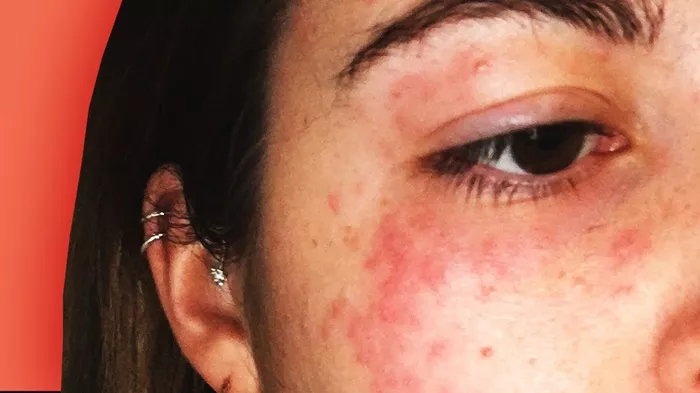Eye makeup can enhance one’s appearance, but for some, it may also cause uncomfortable allergic reactions. If you are experiencing redness, itching, swelling, or irritation around your eyes after applying makeup, you may have an eye makeup allergy. This comprehensive guide will explore the causes, symptoms, prevention strategies, and treatment options for eye makeup allergies.
Understanding Eye Makeup Allergies
What is an Eye Makeup Allergy?
An eye makeup allergy occurs when the immune system reacts adversely to substances in eye makeup products, such as eyeshadow, eyeliner, mascara, or makeup removers. These reactions can range from mild irritation to severe allergic responses.
Common Allergens in Eye Makeup
Several ingredients in eye makeup can trigger allergic reactions, including:
Fragrances: Added to enhance the scent, fragrances can cause allergic reactions in sensitive individuals.
Preservatives: Chemicals like parabens, formaldehyde, and benzalkonium chloride help prolong shelf life but can irritate the eyes.
Dyes and Pigments: Artificial colors used in eye makeup can be allergens.
Metals: Nickel and chromium in some makeup products can cause allergic reactions.
Botanical Extracts: Natural ingredients like plant extracts and essential oils can also be potential allergens.
Symptoms of Eye Makeup Allergy
Symptoms of an eye makeup allergy can vary but typically include:
1. Redness and swelling around the eyes
2. Itching or burning sensation
3. Watery eyes
4. Dry, flaky skin on the eyelids
5. Blisters or rashes
Diagnosing Eye Makeup Allergies
Self-Diagnosis and Observation
Keep a diary of the makeup products you use and the symptoms you experience. This can help identify which products or ingredients may be causing the reaction.
Consulting a Dermatologist or Allergist
A healthcare professional can perform tests to identify specific allergens. These may include:
Patch Testing: Small amounts of potential allergens are applied to the skin to see if a reaction occurs.
Skin Prick Testing: Small amounts of potential allergens are introduced into the skin with a tiny needle to check for immediate reactions.
Preventing Eye Makeup Allergies
Choosing Hypoallergenic Products
Look for products labeled as hypoallergenic, fragrance-free, and free from common irritants. However, even hypoallergenic products can cause reactions in some people, so it’s important to monitor your response to new products.
Performing Patch Tests
Before using a new eye makeup product, apply a small amount to a discreet area of your skin, such as behind your ear or on your wrist. Wait 24-48 hours to check for any signs of an allergic reaction.
Reading Ingredient Labels
Educate yourself on common allergens and read ingredient labels carefully. Avoid products containing ingredients known to cause reactions.
Maintaining Clean Makeup Tools
Regularly clean your makeup brushes and applicators to prevent the buildup of bacteria and allergens. Use a gentle, fragrance-free cleanser and let them dry completely before use.
Avoiding Sharing Makeup
Sharing makeup products can spread bacteria and allergens. Stick to using your own products to minimize the risk of contamination.
Treating Eye Makeup Allergies
Immediate Steps to Take
If you experience an allergic reaction, take the following steps immediately:
Stop Using the Product: Discontinue use of the suspected product immediately.
Rinse Your Eyes: Use cool, clean water or a saline solution to rinse your eyes and remove any remaining product.
Apply a Cold Compress: A cold compress can help reduce swelling and soothe irritation.
Over-the-Counter Treatments
Several over-the-counter (OTC) treatments can help alleviate symptoms:
Antihistamine Eye Drops: These can help reduce itching and swelling.
Artificial Tears: Lubricating eye drops can relieve dryness and irritation.
Hydrocortisone Cream: A mild hydrocortisone cream can be applied to the eyelids to reduce inflammation, but it should be used with caution and not directly in the eyes.
Prescription Treatments
For more severe reactions, a healthcare professional may prescribe:
Stronger Corticosteroid Creams or Ointments: These can reduce inflammation more effectively than OTC options.
Oral Antihistamines: These can help control systemic allergic reactions.
Immunotherapy: In rare cases, long-term treatment with allergy shots may be recommended to desensitize the immune system to specific allergens.
Natural Remedies and Home Care
Cold Milk Compress
Soak a cotton pad in cold milk and apply it to your closed eyelids. The cold temperature can reduce swelling, while the milk’s lactic acid can help soothe the skin.
Cucumber Slices
Cucumber slices placed over the eyes can provide a cooling effect and reduce puffiness and irritation.
Aloe Vera Gel
Pure aloe vera gel can soothe irritated skin and reduce inflammation. Ensure it does not contain added fragrances or alcohol.
Green Tea Bags
Used green tea bags, cooled in the refrigerator, can be placed over the eyes to reduce swelling and soothe irritation due to their anti-inflammatory properties.
Long-Term Management and Prevention
Identifying Triggers
Work with a dermatologist or allergist to identify specific triggers and avoid products containing those ingredients.
Building a Safe Makeup Routine
Create a makeup routine using products that you know do not cause reactions. Stick to brands and items that are gentle on your skin.
Regular Skin Care
Maintain a gentle skincare routine to keep the skin around your eyes healthy and resilient. Use fragrance-free, hypoallergenic moisturizers and cleansers.
Environmental Factors
Be mindful of environmental factors that can exacerbate allergies, such as pollen, dust, and pollution. Keeping your living space clean and using air purifiers can help.
When to Seek Medical Attention
Severe Reactions
Seek immediate medical attention if you experience severe symptoms, such as:
1. Extreme swelling
2. Difficulty breathing
3. Blurred vision
4. Persistent pain
5. Persistent Symptoms
If symptoms persist despite discontinuing the product and using OTC treatments, consult a healthcare professional for further evaluation and management.
Conclusion
Eye makeup allergies can be frustrating, but with careful management and preventive strategies, you can minimize your risk and enjoy your beauty routine without discomfort. Identifying and avoiding triggers, choosing hypoallergenic products, and following a gentle skincare routine are key steps in managing eye makeup allergies. Always consult with healthcare professionals for personalized advice and treatment options, and stay informed about the ingredients in your cosmetics to maintain healthy, irritation-free eyes.
[inline_related_posts title=”You Might Be Interested In” title_align=”left” style=”list” number=”6″ align=”none” ids=”8806,8802,8798″ by=”categories” orderby=”rand” order=”DESC” hide_thumb=”no” thumb_right=”no” views=”no” date=”yes” grid_columns=”2″ post_type=”” tax=””]
































